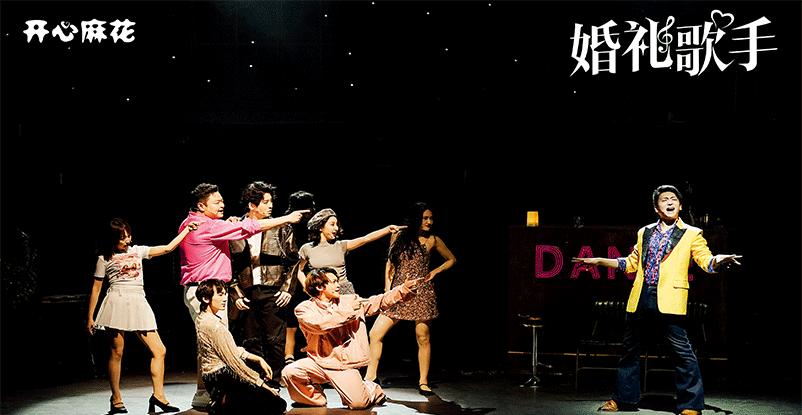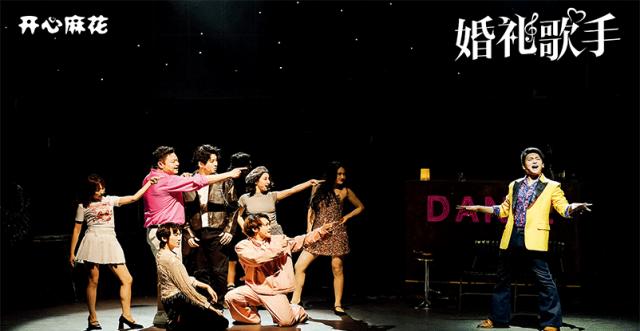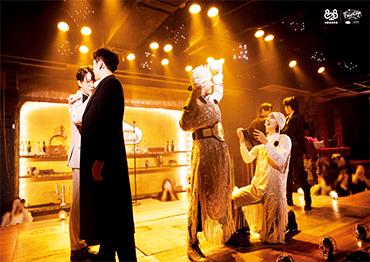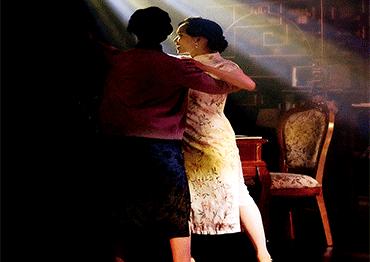Xiao Xin, a college student in Suzhou, Jiangsu Province, watched more than 100 musical shows last year, mostly in Shanghai. Since February 2023, she has made monthly trips to the city. Each time, she books a cheap youth hostel and spends two afternoons and nights in theaters.
“Every time I walk around People’s Square, I immediately recognize other musical fans like me,” Xiao said. “Some hand out flyers for shows on the street, and others carry tote bags with phrases like ‘another musical?!’ printed on them.”
Without a doubt, Shanghai has become China’s musical theater capital.
According to the 2024 Annual Report on China’s Musical Market, jointly released by the China Association of Performing Arts and the ticketing platform Taopiaopiao, from January to October 2024, nearly 60 percent of all musical performances were staged in Shanghai. The city accounted for 56 percent of nationwide musical box office revenues, far ahead of Beijing’s 14 percent share.
“I really envy audiences in Shanghai. Many overseas musicals only stop there, and a lot of domestic productions are staged exclusively in Shanghai too,” said 24-year-old musicals fan Hao Muzhi from Beijing. “This year, Japanese musical Spirited Away only visited Shanghai. If you want to see the original versions of Six, Kinky Boots or Les Misérables in China, your only option is to book a flight to Shanghai.”
Many Chinese musicals never show outside the city. “Last year, I really wanted to see a Chinese musical called B for Busy. It was highly praised on social media, but only performed in Shanghai. The story takes place in the city and includes a lot of dialogue in the Shanghainese dialect,” Hao said.
As a result, jetting into to Shanghai to catch shows has become a growing trend, with some diehard fans flying in monthly. They call it “taking a flying taxi to a show.”
Another trend involves students or working people who arrive in Shanghai on Friday, binge-watch seven or eight shows over the weekend, and fly home Sunday evening. Some theaters even offer luggage storage for out-of-town fans.
Shanghai has also drawn theater talent from across the country.
Actor Sang Kezhou is one of China’s early professional musical performers. Raised in Beijing, he joined the industry after graduating from the National Academy of Chinese Theater Arts in 2012. Until 2021, he primarily worked in Beijing, performing in well-known Chinese musicals such as The Piano in a Factory and Long March.
In 2021, Sang was invited to join the Shanghai-based production of The Long Night. He arrived with just a backpack, thinking he would return to Beijing after rehearsals. But by the end of the year, he had rented an apartment in Shanghai.
“I felt that as a musical actor, your schedule can be completely booked here,” Sang told NewsChina. “While I was performing The Long Night, another musical, The Novel, invited me to join. After that, a small theater production approached me right away... By the end of 2021, I decided to settle in this city.”
The thriving musical scene in Shanghai reminded Sang of the vibrant small-theater scene in Beijing around 2010. Back then, Beijing saw a boom in original productions like I’m Not Li Bai and Mr. Donkey.
Many were staged at the Nine Theater in the capital’s Chaoyang Culture Center building which opened in 2004. Named after its nine performance spaces, it closely resembles today’s Asia Building in both structure and spirit.
Over the past three years, Sang has averaged about 130 performances annually. “If I were Superman with unlimited energy, I could perform every single day, because in Shanghai, the musical opportunities are endless,” he said.
Zhang Zhilin, founder and CEO of production company Muse Musicals, emphasized that Shanghai’s prominence does not mean other cities lack potential.
“In recent years, many fans have taken a ‘flying taxi’ to Shanghai just to see musicals. That means the demand is real in other cities, but we just haven’t met it yet,” Zhang told NewsChina.

 Old Version
Old Version



